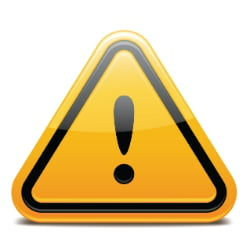
Cough Medicine Abuse by Teens
15 June 2007
Dextromethorphan (DXM), a cough suppressant, is found in at least 70 over-the-counter (OTC) products, including Alka-Seltzer Plus Cold & Cough Medicine, Coricidin Cough and Cold Tablets, Dimetapp DM, Robitussin cough products, Triaminic cough syrups, Tylenol Cold products and Vicks NyQuil LiquiCaps, according to the Partnership for a Drug-Free America.
Used as directed on the label, DXM products are effective at suppressing cough and are safe to use. DXM was approved by the U.S. Food and Drug Administration in 1958 and has no side effects when used in small doses — typically, 10 to 20 mg doses every four to six hours, or 30 mg every six to eight hours.
When taken in vastly larger quantities, however, DXM produces a distorted awareness, altered time perception and hallucinations, according to the University of Maryland’s Center for Substance Abuse Research (CESAR). And if taken along with other drugs — even other OTC medications like acetaminophen — the combination can cause liver damage, heart attack, stroke or death.
Abuse on the rise
Cough syrup abuse has been a problem for decades, but the concern in the past had been about the alcohol and codeine in cough and cold products. Because of that, the alcohol has been removed from most OTC cough and cold remedies, and products that contain codeine now require a prescription.
DXM seemed a good alternative to codeine and alcohol. It had few, if any side effects, when used as directed. And a larger quantity of DXM — downing several bottles of cough syrup at one time, for instance — would cause vomiting.
Teens have alternatives to drinking the syrup, however. Today, DXM is also available in powder, capsule and pill forms, particularly over the Internet. These forms can be swallowed or snorted, according to the Drug Enforcement Administration. Some Web sites even tell users how to extract DXM from cough syrup and advise users how much DXM to take to get high. Illicit users may take 240 mg to 1,500 mg of DXM at a time.
The Partnership for a Drug-Free America estimates that one in 11 teens has abused cough medicine or other OTC products.
According to CESAR, slang terms for DXM include Black Beauties, Brownies, Dexies, Dextro, Drix, Gel, Groove, Mega-perls, Poor Man’s Ecstasy, Red Devils, Robo, Rojo, Rome, Sky, Triple C, Tussin and Velvet.
Effects of abuse
The effects of DXM have been compared to PCP (phencyclidine) and the anesthetic ketamine. All three are called dissociative substances: At high doses, they give the abuser a feeling of not being in one’s own body. DXM also produces hallucinations. The effects can last up to six hours, but that can vary, depending on how much DXM is taken and what other drugs or chemicals are taken along with DXM.
People who regularly abuse large amounts of DXM are also at risk for ingesting toxic amounts of other drugs, such as acetaminophen, found in OTC cough and cold medications that contain DXM.
According to CESAR, other effects of DXM include:
- Hot flashes
- Nausea, vomiting and dizziness
- Lack of coordination
- Panic attack or seizures
- Impaired judgment
- Sweating
- Lethargy or drowsiness — or hyperactivity
- Slurred speech
- High blood pressure
- Rapid eye movement
- Rash
- Racing or pounding heartbeat
- Paranoia and hallucinations
- Feeling of floating
- Regular abuse of DXM at high doses can lead to toxic psychosis, in which the person loses contact with reality and is in a perpetual confused state.
What you can do
As a parent, you should warn your children about the dangers of abusing OTC drugs. Some teens believe that OTC drugs are safer to abuse because they are legal.
Here are other suggestions from the Substance Abuse and Mental Health Services Administration, part of the U.S. Department of Health and Human Services:
- Monitor the OTC drugs in your home.
- Keep track of how much medicine is in each bottle.
- Don’t buy extra OTC drugs to “stock up”.
- Don’t allow your children to keep OTC drugs in the bedroom, backpack or school locker.
- Monitor your children’s Internet use, keeping an eye out for Web sites visited that discuss OTC or other drug abuse.
- Use OTC and prescription medicines responsibly yourself.
